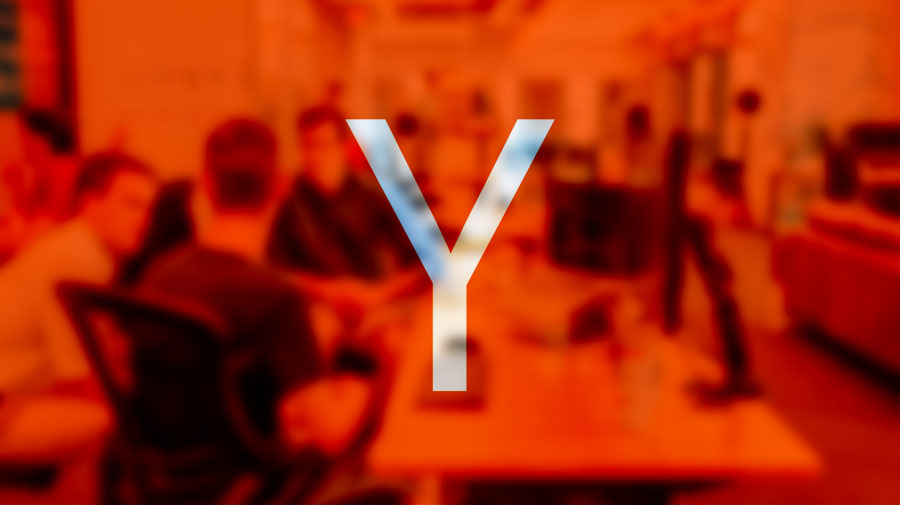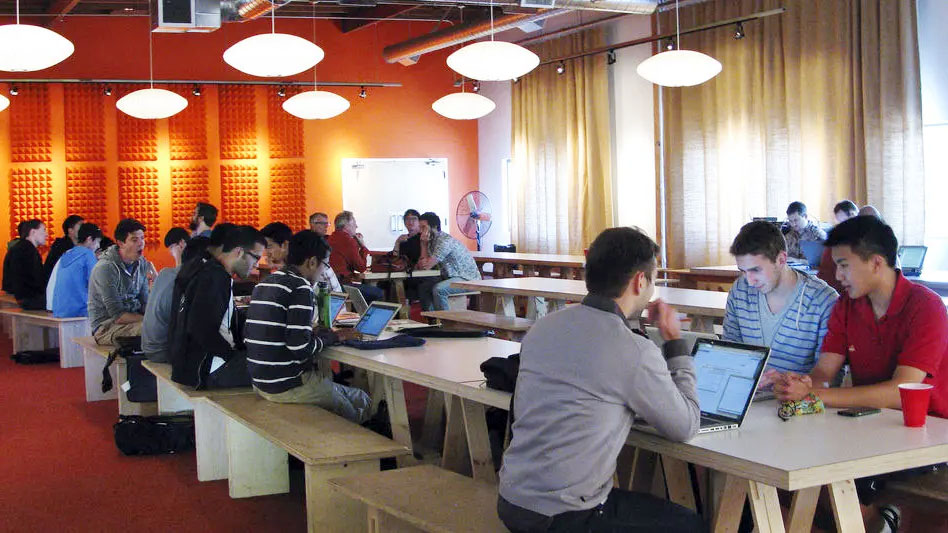15 Preparing for Y Combinator Interview Questions (2023)
Getting accepted onto the Y Combinator accelerator programme is a badge of honour - it ain't easy to make the cut. Here are some tips to give you the best chances of success in your Y Combinator interview.

Incredibly, the total value of the top businesses accelerated by Y Combinator surpassed $300 billion in early 2021 (Medium 2021). Y Combinator’s efforts have helped create 60,000+ jobs, and over 125 of the companies they’ve supported are valued at $150 million or more.
Given these stats, it’s no wonder that so many startups apply to Y Combinator for funding and support. At 4 Day Week, we understand the importance of preparing for interviews, whether for a job or funding. Today, we’ll discuss how you can best prepare for a Y Combinator interview and look at sample questions and answers.
What Y Combinator interviews care about
Y Combinator is a startup accelerator with headquarters in Mountain View, California. Twice annually, YC invests millions of dollars into a whole host of startups, allowing each of them to take strides in the right direction.
When going for a funding interview, you must know what your interviewers value in startups. We’ve put together a list below based on reports from those who Y Combinator previously interviewed.
The qualities of a startup that Y Combinator values (according to previous interviewees):
- Energy and enthusiasm.
- Tons of potential to tap into an existing or new market.
- Can demonstrate meaningful traction.
- A key advantage over your competitors (e.g., a genius idea or the perfect timing for your type of startup to launch).
- Being direct and getting to the point.
- A non-defensive attitude.
- The potential to become a multi-billion dollar business.
- Suitable experience to bring your startup forward.
- A solid founding team.
Would you like a 4 day work week?
How to prepare for a Y Combinator interview
There are several important steps you need to consider when preparing for a Y Combinator interview. We’ll look primarily at general preparation before looking at specific tips for answering common YC interview questions later.

Here are the best ways of preparing:
- Maximize the value and potential of your service/product before going to the interview - Of course, it’s ideal that you take steps in this direction before even applying. With that said, in the time between submitting your YC application and the interview, there’ll be room to improve the value of your startup further. However, even if your startup doesn’t have the most impressive reach or setup in the world, it can still succeed. After all, 11% of Y Combinator funded companies started remotely. This includes companies like OpenSea and Gitlab.
- Memorize details about your application’s most tantalizing aspects - Whether it be your traction, experience, metrics, market insights, growth rate, or otherwise, it’s important to know by heart the best elements of your application. Moreover, you should memorize tons of relevant details, such as your stats and quotes from customer feedback (i.e., user anecdotes). Also, don’t forget that YC interview questions can differ a great deal from Y Combinator application questions. After all, they’ll want to get to know you and your startup in more detail by the interview phase.
- Have a demo ready - Zen99 reported that they were asked whether they had a demo during their Y Combinator interview. You may not be asked to show it, but having one prepared could prove valuable either way as, at the very least, it would show how prepared you are.
Looking for a less-demanding job while launching a startup? We regularly post 32-hour job ads on our site, offering professionals the chance to achieve a better work-life balance. Sign up to our weekly email alerts today to find a job that gives you the time needed to work on your dreams.
Common interview questions
Based on our research, the following questions may come up (or something approximating these questions):
- Please quantify your market size.
- Why is your startup the top solution for this [market] issue?
- Can you narrowly define the problem your startup is trying to solve?
- Who will be your first paying customer/who was your first customer?
- In terms of user acquisition, what is your plan for overcoming resistance?
- What’s the biggest mistake your startup has made so far?
- Will we need to compose a business plan for you?
- Do you have a straightforward and appropriate mission statement?
- How will you create revenue?
- How easy is it for your target market to find your product/service?
- Currently, what is your top-level key performance indicator?
- Why did your team form in the beginning?
- What are some key aspects of your field that most people don’t know about?
- What is likely to be your primary challenge several months from now?
- How long is your product development cycle?
- What are you using to find metrics of how users engage with your product/service?
Tips for answering these interview questions
As promised, we’ll now look at how you can optimally approach common Y Combinator interview questions.
How to answer Y Combinator interview questions:
- Put your strengths on display - You must convey your strengths, both as an individual and as a startup, when answering questions. This shows that you have the drive and energy to succeed and specific selling points, along with the know-how to make it work. Your strengths may lie primarily in your metrics, strategy, sector insights, or your understanding of the issue your startup is attempting to solve, among other possibilities.
- Tons of practice - You need to consider potential questions and general question areas that are likely to come up in an interview. Practice answering them repeatedly in the lead-up to your interview. You can also record yourself and watch it over to gain a more objective view of how you perform at answering questions. This will show you how you come across, allowing you to figure out how to improve ahead of the real thing.
- Who will answer what? - You should also consider who on your team should deal with specific question areas, albeit the ratio of who speaks how much doesn’t have to be spread out evenly. For instance, one individual may answer around 75% of questions while two other members deal with the remaining interview questions.
- Stay away from buzzwords and jargon - YC interviewers want to hear something new and appealing. After all, that’s what makes something novel. Emphasize what you do differently from the rest of the market in specific ways. Ultimately, you want to make your answers as fresh and exciting as possible while still communicating the underlying message.
How to frame your answers with the STAR method
The STAR method, short for the Situation, Task, Action, and Result method, is an interview strategy designed to garner details about interviewees. This includes information related to their qualities and potential.
The good news is that the STAR method is also a valuable approach for framing interview answers. This means that you can communicate key details about your own qualities and potential and those of your startup regardless of the questions the interviewers ask.
Let’s explore some interview Qs and As with the STAR method in mind. For the following answers, we’ll imagine a hypothetical scenario in which you represent a business that provides a highly encrypted SaaS for professional bioprinting with the ability to save designs in the cloud.
Question: What are you using to find metrics of how users are engaging with your service?
Your Response:
- Situation: "When we launched our SaaS in March, we wanted to ensure that we could track our key metrics.”
- Task: "We knew we had to carefully determine what metric categories were essential for running our startup optimally before choosing the best tools within our budget.”
- Action: "For SEO, we initially considered Ahrefs, but we felt SEMRush was more suitable for our needs and ultimately worth paying a bit extra for each month. Along with Google Analytics, we use SEMRush to track metrics such as SERP tracking, website visitor engagement, and social media engagement and traffic. We’ve also employed WordStream Advisor for PPC analytics and YesWare for email analytics.”
- Result: "SEMRush allowed us to increase our overall web traffic by 325% while improving the page rankings for almost half of our blogs which are full of successful CTAs. The other tools I mentioned have also proven beneficial in allowing us to scale. With that being said, we believe if we had the budget for higher-end tools or even the best packages of the aforementioned tools, we could scale even more effectively.”
Question: In terms of user acquisition, what is your plan for overcoming resistance?
Your Response:
- Situation: "We knew from the get-go that one of our core challenges would be to show biologists why they need our software.”
- Task: "Moreover, our goals for user acquisition were two-fold from the start. First, we knew we had to maximize sign-ups by presenting concise, compelling reasons to use our service. Secondly, we intended to minimize our bounce rate and maximize our conversion rate.”
- Action: "Over the course of several meetings, we narrowed down our sign-up points to just a few. These included how our service can lower costs for biological institutions and companies and how it can improve the speed of their research. As for our web design, we kept things simple and navigable. We made sure to minimize our page loading time, and, lastly, we used follow-up emails for potential customers who showed interest but hadn’t gone through with signing up.”
- Result: "As a result of our efforts, dozens of biologists, including those from renowned institutions, have signed up for our service.”
Learn more from our blog
Today we’ve looked at what steps you can take to prepare for a YC interview and what questions you might face. We’ve also discussed how you can use the STAR method to frame your answers.
If you’d like to learn more about job and interview preparation, check out our blog. We explore topics such as Facebook’s onsite interview success rate and how you can even employ the STAR method for writing your resumé.